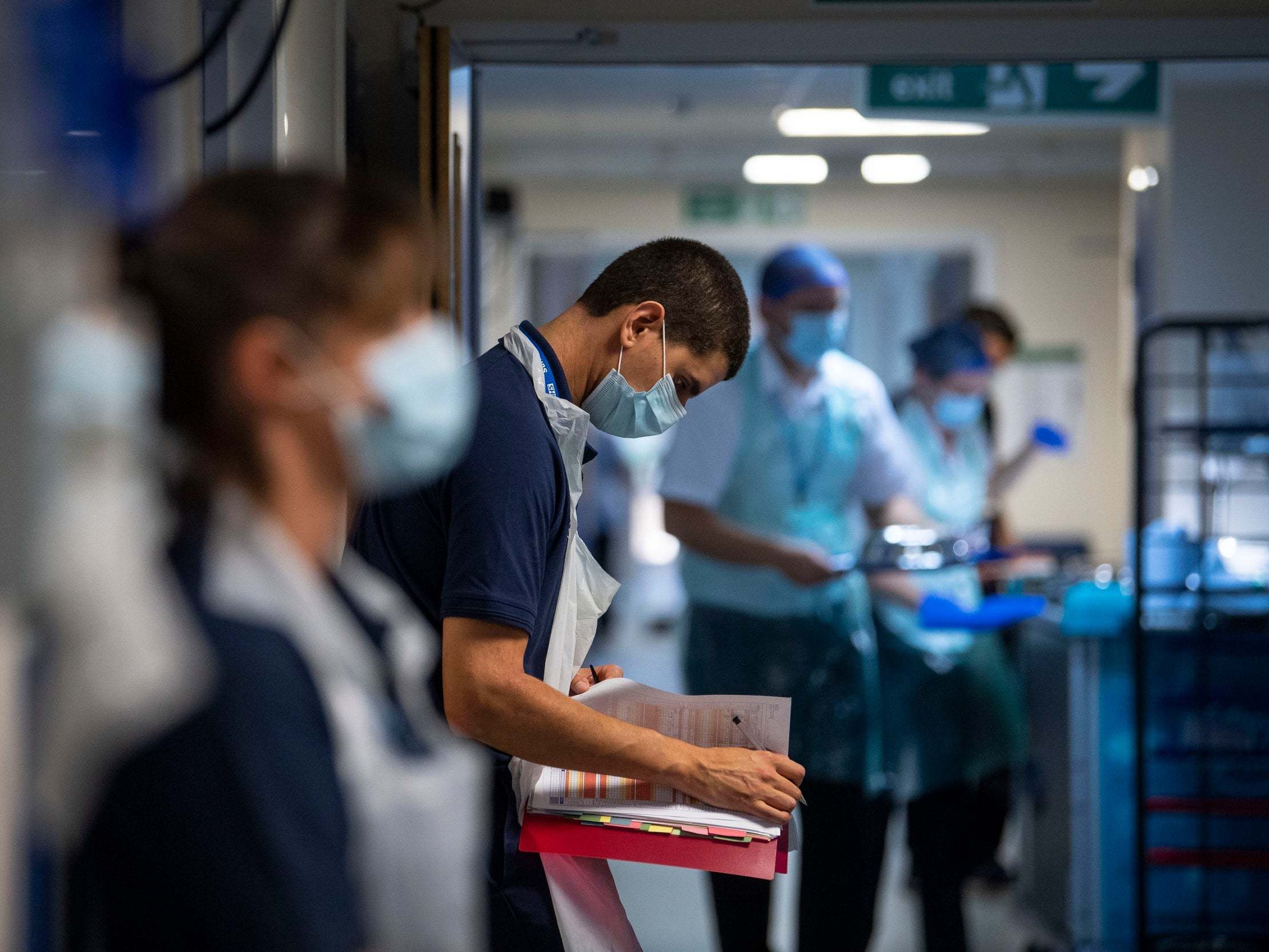Ministers press ahead with plan to have more control over NHS
Major new reforms to health service will create powerful new regional organisations

Your support helps us to tell the story
From reproductive rights to climate change to Big Tech, The Independent is on the ground when the story is developing. Whether it's investigating the financials of Elon Musk's pro-Trump PAC or producing our latest documentary, 'The A Word', which shines a light on the American women fighting for reproductive rights, we know how important it is to parse out the facts from the messaging.
At such a critical moment in US history, we need reporters on the ground. Your donation allows us to keep sending journalists to speak to both sides of the story.
The Independent is trusted by Americans across the entire political spectrum. And unlike many other quality news outlets, we choose not to lock Americans out of our reporting and analysis with paywalls. We believe quality journalism should be available to everyone, paid for by those who can afford it.
Your support makes all the difference.Ministers are pressing ahead with the first major reform of the NHS in almost a decade which will give the health secretary sweeping new powers to control how it operates.
The Health and Care Bill was published on Tuesday and sets out the ambitions to re-shape the NHS in England with 42 new regional integrated care boards which will be tasked with joining up health and care services.
But experts have warned the legislation risks “gridlock” as it also includes new powers allowing Sajid Javid to instruct NHS England in the exercise of any of its functions. This will also extend to local NHS organisations.
The health secretary will also have a wide-ranging power to intervene in local reconfigurations of NHS services, appoint individuals to local care boards and be able to make changes to national bodies without returning to Parliament.
Nigel Edwards, chief executive of the health think tank the Nuffield Trust said the ambitions to integrate care had been “bundled up” with extra powers for politicians which he said “may lead to worse decisions, and they will come to regret it.
“Politicians should have the power to tell the NHS what to do, but they are not best placed to tell it exactly how to do it. The new role for the secretary of state in intervening at any stage of changes to any service is a recipe for local decisions ending up in Whitehall and Westminster.
“It risks gridlock and a lack of innovation, and ministers themselves might come to feel it as a millstone around their necks.”
Proposals in the legislation require the creation of regional integrated care boards which will have responsibility to provide services to everyone usually resident in their area or who received GP services. NHS England will also deliver some specific national services.
Local Clinical Commissioning Groups, created in 2013 after the last piece of legislation, will be abolished.
The new ICBs will be required to work with local authorities to join up services like social care, public health etc and will be expected to promote patient choice, reduce inequalities and consult the public over any significant changes in services.
The ICBs will be required to publish five-year plans for their areas.
The Health and Care Bill also includes:
- A requirement for the health secretary to publish an assessment of NHS workforce planning at least once every five years.
- It removes aspects of competition law and barriers to NHS trusts merging.
- The Healthcare Safety Investigation Branch will be given formal independence and powers to investigate safety incidents. Information will not be able to be used against doctors or nurses. The health secretary will have the power to direct it to investigate incidents.
- The Care Quality Commission will be given expanded powers to inspect local authorities.
- The health secretary will be able to provide funding directly to social care providers.
- Powers to deregulate some healthcare roles and to merge together other regulators such as the General Medical Council and Nursing and Midwifery Council.
- Establishing the role of medical examiners within NHS trusts in law.
- New laws on calorie labelling on food and drink packaging and the advertising of junk food before the 9pm watershed.
- The government will also have the power to add fluoride to drinking water.
Sir Simon Stevens, NHS England’s chief executive said: “This bill contains widely supported proposals for integrated care, which have been developed and consulted on over recent years by the NHS itself.
“They go with the grain of what our staff and patients can see is needed, by removing outdated and bureaucratic legal barriers to joined-up working between GPs, hospitals, and community services.
“In doing so, these pragmatic reforms build on the sensible and practical changes already well underway right across the NHS. And by enabling mutual support between different parts of the local health and care services they will undoubtedly both help tackle health inequalities and speed the recovery of care disrupted by the Covid pandemic.”
Join our commenting forum
Join thought-provoking conversations, follow other Independent readers and see their replies
Comments